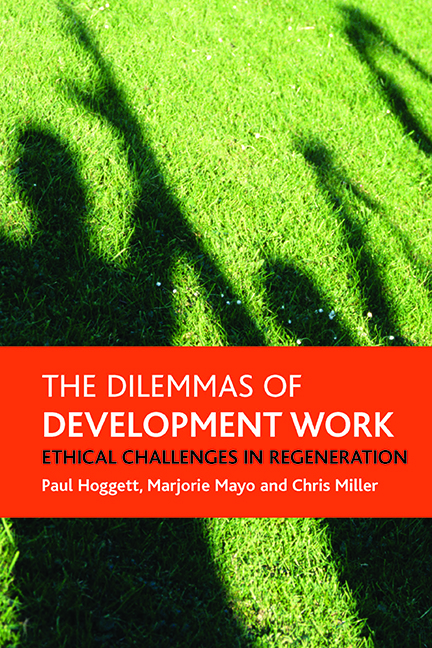ten - The future of development work
Published online by Cambridge University Press: 21 January 2022
Summary
Reflecting on ‘Writing in and against time’, Back challenges the idea ‘that we can write about societies as if they hold still while we sketch them. What anthropologists call the “ethnographic present” (ie the idea that eternal assertions can be made like “Nuer religion is …” or “middle-class culture is …”) simply seems absurd when you think about it’, Back continues (2004, p 204). ‘The idea that we are writing in time, at a particular moment, which is partial and positioned and in place, is a major advance’, he suggests. ‘I think we are also writing against time, trying to capture an outline of an existence that is fleeting’, Back concludes (2004, p 204), while re-affirming his personal commitment to doing precisely this, listening and speaking to people who ‘live the consequence of the globalised world’ with respect and humility ‘while maintaining critical judgement’ (2004, p 213).
This concluding chapter starts from here, recognising the challenges involved in attempting to capture the dilemmas of the current context, let alone attempting to project future scenarios for development workers in the years to come. The pace of change has, in recent years, been particularly rapid in public policy terms, with no immediate prospect of any slowing down. Communities seeking to engage with planners and service providers face a potentially bewildering array of structures, marked by increasing complexity and growing fragmentation. As a result, the need for development work would seem likely to continue, if not increase. While our focus will be predominantly British, there is some evidence to suggest that similar tendencies may be identified more widely.
Meanwhile, communities have become increasingly diverse, it has been argued, and identities perceived as increasingly complex, in their turn (Hall, 1991; Bhabha, 1994; Solomos, 2003). The chapter moves on to summarise the arguments in support of this view. Globalisation has been associated with changing patterns of migration and population churn, changes that have been debated from varying perspectives along the political spectrum. Despite certain popular expressions of nostalgia for some (mythically) homogeneous British or English past, the phenomena of continuing population churn, with diasporic communities and hybrid identities, would seem more likely to be here to stay. Once again, there would seem to be significant implications for development work. If established communities find governance structures confusing, these challenges tend to be compounded for newer arrivals.
Information
- Type
- Chapter
- Information
- The Dilemmas of Development WorkEthical Challenges in Regeneration, pp. 165 - 178Publisher: Bristol University PressPrint publication year: 2008
